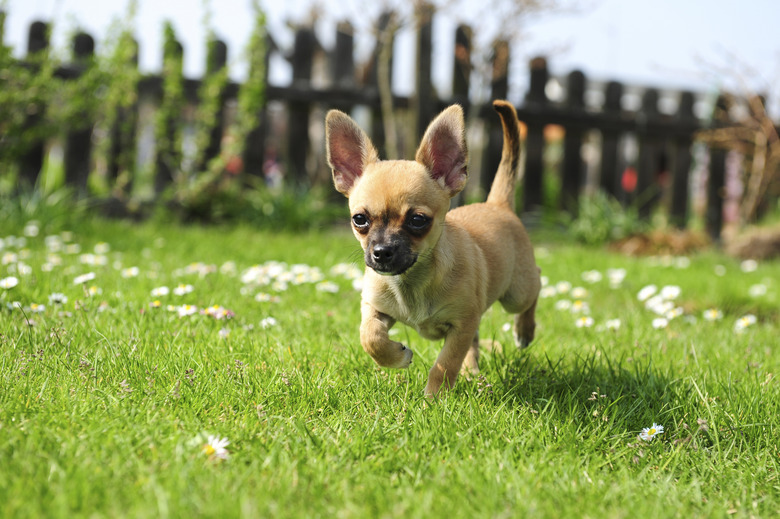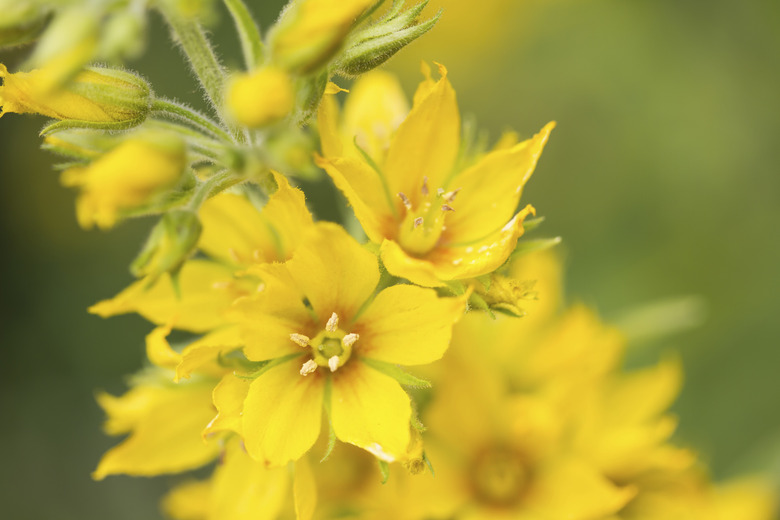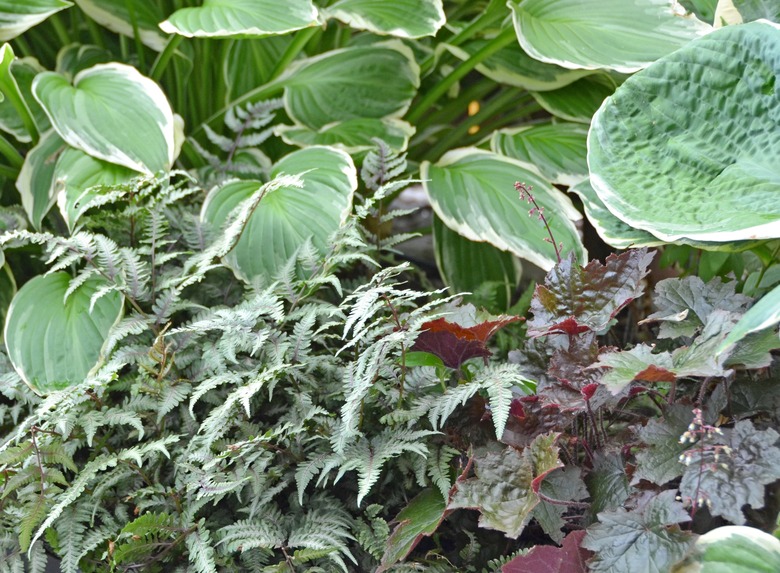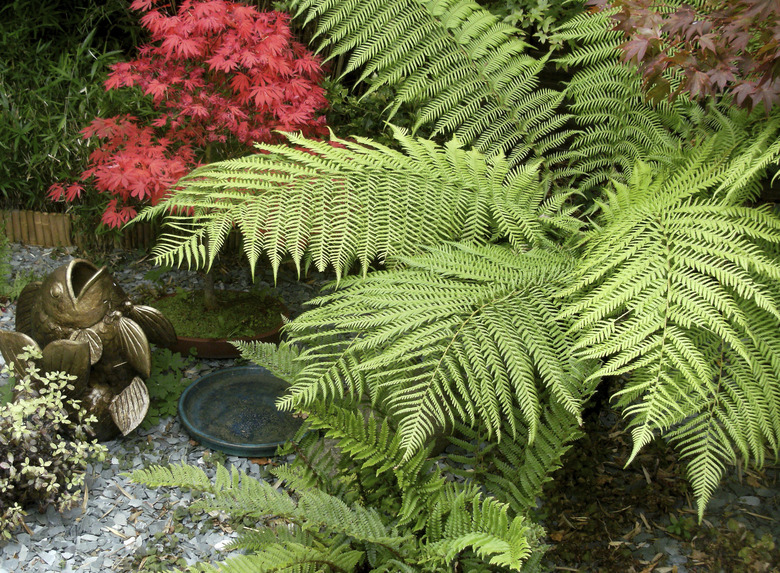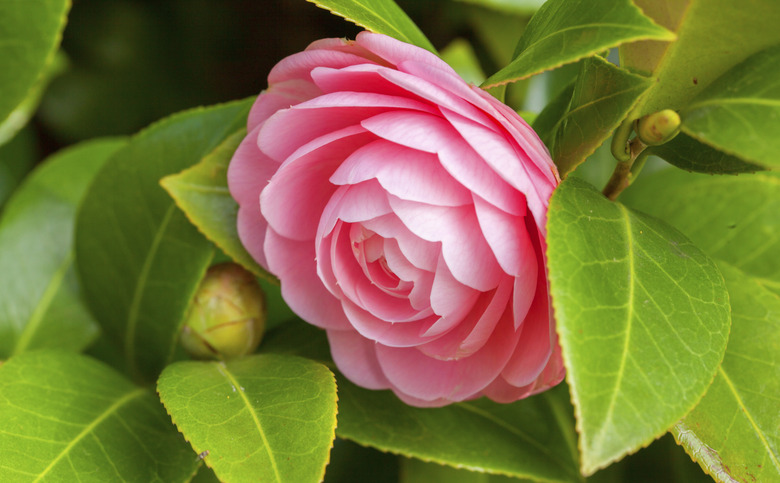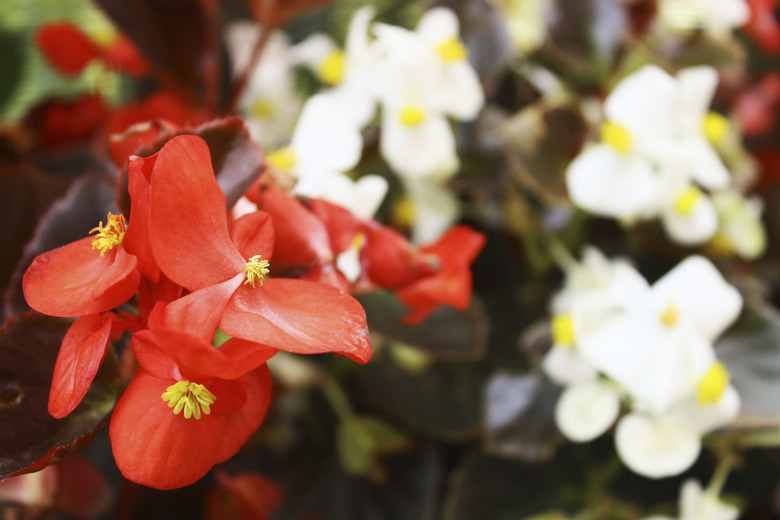Dog-Safe Shade Perennials
During the dog days of summer, dogs themselves can often be found seeking refuge in the shadiest parts of your yard. To keep your garden safe for canines that can't resist a little munching or burrowing with their exploring, choose plants that won't irritate their skin or cause internal distress. Cross-referencing perennial plants that love full or partial shade with those considered non-toxic to dogs can be a daunting task — but it's worth it to keep your curious companions safe.
Carefree Creepers
Carefree Creepers
A nontoxic ground cover that grows well in part shade, creeping Jenny (Lysimachia nummularia) features petite, rounded leaves that turn golden with some sunlight, but will still be striking in shade. Grow the vigorous spreader, considered invasive in some areas, in moist soil. Creeping Jenny is perennial in U.S. Department of Agriculture plant hardiness zones 4 to 8. Another small-leaved ground cover that's safe for dogs, plumbago (Ceratostigma plumbaginoides) is a more compact plant that grows best in USDA zones 5 to 9 and prefers somewhat more normal soils than moisture-loving creeping Jenny does. Plumbago bears blue flowers in mid- to late summer and has a spread of about 18 inches.
Danger-Free Drama
Danger-Free Drama
Foliage plants provide dramatic backdrops to shorter flowers and groundcovers. Although heuchera (Heuchera spp.) also goes by the name "coral bells," its showy foliage sets this dog-friendly plant apart. Depending on the cultivar you choose, the heart-shaped leaves may have patterns of red and gold, silver and green or neon tones. Heucheras are hardy in USDA zones 4 to 9. If you live in a warmer climate, consider the cast iron plant (Aspidistra elatior), a large-leaved perennial in USDA zones 8 to 10. With a spread that's about 2 feet tall and wide, the cast iron plant is a nontoxic option for foundation screening or as a backdrop to shade-loving flowers.
Fido-Friendly Ferns
Fido-Friendly Ferns
Because the fern group is such a large one, it's best to check out individual species with a database such as the ASPCA's before you plant ferns. For example, the houseplant and tropical perennial asparagus fern (Aspidium falcatum, USDA zones 9 to 11) is poisonous to dogs. However, among the many nontoxic, shade-loving ferns available are Japanese holly fern (Cyrtomium falcatum, USDA zones 6 to 10), Boston fern (Nephrolepis biserrata, USDA zones 10 to 12), rabbit's foot fern (Davallia fejeensis, USDA zones 10 to 12), hen and chicken fern or spleenwort (Asplenium platyneuron, USDA zones 3 to 8) and the staghorn fern (Platycerium bifurcatum, USDA zones 9 to 12).
Trees for Tail-Waggers
Trees for Tail-Waggers
To anchor a large shade garden, a tall evergreen such as the Canadian hemlock (Tsuga canadensis) provides drama as well as a safe environment for dogs. Growing up to 70 feet tall, this hemlock does best in USDA zones 3 to 7. Shrubs also serve as substantial backdrops. Camellias (Camellia spp.) are nontoxic, shade-loving shrubs for humid climates. These small to medium flowering plants do best in partial shade and feature rose-like blooms and succulent foliage. Depending on the cultivar, they are hardy in USDA zones 7 to 10. Another shrub group with many varieties to choose among, viburnums (Viburnum spp.) are flowering bushes with fragrant, light-colored blossoms. As a group, they're hardy from USDA zones 3 to 9.
Climber for Canines
Climber for Canines
If you live in a warm-weather region, the climbing begonia (Cissus discolo) can light up a shady corner year-round. This non-toxic leafy vine has dark green foliage that is splattered with silver. The leaves boast striking red veins and red undersides. These short vines, which are hardy in USDA zone 11, are often grown on short trellises inside containers. Gardeners in cooler climates take them inside during the winter months.
References
- ASPCA: Non-Toxic Plants for Dogs
- Blue Mountain Human Society: Plants and Pets Non-Toxic Listing
- Sunset: 20 Colorful Plants for Shade Gardening
- Clemson Extension: Plants for Shade
- Perennials.com: Top 10 Perennials for Shady Gardens (Regular Moisture)
- Perennials.com: Top 10 Perennials for Shady Gardens (Dry Shade)
- Vet Street: 10 Household Plants That Are Dangerous to Dogs and Cats
- Missouri Botanical Garden: Tsuga Canadensis
